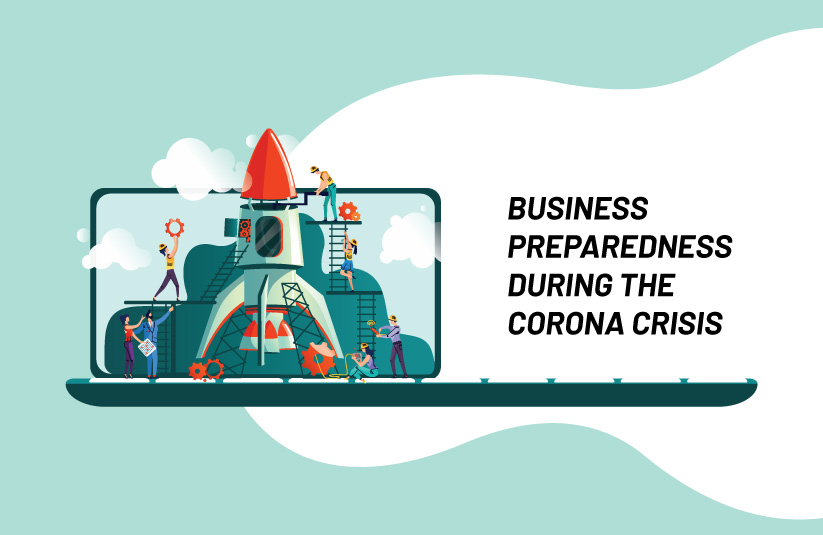Business Emergency Response Plan
The novel coronavirus outbreak has fast developed into a global health crisis and has greatly affected the world economy. Not only this, but it has also proved to become a challenge for most of the businesses worldwide. Small businesses have shut down temporarily, and many businesses are laying off employees, leading to a rise in unemployment rates.
The coronavirus outbreak is moving quickly and the World Health Organization (WHO) has declared coronavirus an epidemic and an international public health emergency.
The economy has been affected by the outbreak in several ways—the stock market has taken a huge hit, the travel industry has been badly damaged, customers are buying less, several businesses have shut down temporarily or permanently. But for small businesses, there could be long-term effects on daily life and work in local communities.
Such an outbreak can affect your business, employees, customers and ultimately your revenue. The most obvious way a pandemic affects businesses is the time off taken by employees. The sick days taken by employees can cost a business thousands of dollars. As much as a pandemic impacts the employees, it affects your customers too. A pandemic will have a tremendous impact on your customers’ purchasing behavior—you may lose customers or (depending on your business) you may see a surge in online orders.
Furthermore, your business and revenue will take a hit. You’ll need to reallocate how you’ll be investing your company’s time and money during the pandemic.
Aside from the pandemic affecting your business, your business will influence your customers and your community. For example, during a pandemic, the way you normally conduct business might become a health risk. Many of your policies will need to change to avoid the risk of spreading the disease. You may, for instance, require employees to work remotely.
That’s why the attitude of a company’s leadership towards dealing with pandemics is critical in controlling its outcome. Communicating the steps your business is taking to prevent contamination could be the first step you take.
What to Do in the Case of a Pandemic?
Pandemic Policies and Manuals
Create pandemic response manuals and polices: Create special policies that you’ll implement in the event of a pandemic. This may include wearing special work gear, working remotely, policies on disinfecting the workplace or washing hands frequently.
Train Your Employees
Once you have finished creating the pandemic manual, train your employees on these practices so they are prepared in case of a pandemic. Hold weekly, Monthly and quarterly meetings to discuss the potential impact; send out newsletters to everyone in your organization so that they are on top of the pandemic manual and are prepared for any kind of emergency.
Know Here: Why Your Employees Need Training?
Review and Modify
Review and modify the pandemic manual as needed. See how to continue key ongoing operations. Finally, reach out to your key vendors to understand their plans and pain points so that you can adapt yours if there is a potential gap.
Have Staffing Agencies on Speed Dial
As businesses are currently experiencing, a pandemic could put half or more of your workforce on sick leave, leaving your business to shut down temporarily. If you can’t quickly fill the positions they leave behind, you’ll have to shut down until further notice. That’s why it is always good to research staffing agencies and have a good relationship with them. Be ready to hire temporary replacements when the pandemic hits your business. Staffing agencies have such trained replacements on standby.
Identify Employees with Critical Skills
Another way to overcome this issue is to cross-train employees to do key functions in your business. That way, you have backups who can fill key positions in case critical employees can’t come in.
Following is an easy to follow checklist.
Before an Outbreak: Plan Ahead
- Work with the local health department to develop a plan. Identify decision-making authority. Plan roles and responsibilities.
- Develop flexible policies for employees. Those sick need to stay home. Have flexible policies in place if they need to care for a sick spouse or care for children if schools are closed. Plan for remote work.
- Identify critical functions and cross-train your employees.
- Research a staffing agency and keep their information on hand.
- Have extra supplies of disinfectants, soap, hand sanitizers, and tissues on hand.
- Create an emergency communication plan. Update and distribute to key people: your workforce, customers, suppliers, vendors, and key stakeholders.
- Stay informed about the COVID-19 situation.
During an Outbreak: Steps to Take
- Work with the local health department to implement response measures.
- Update partners, stakeholders, employees, and customers regularly.
- Continue to promote healthy habits.
- Help in dispelling rumors and misinformation—address the potential fear and anxiety head-on.
- Clean frequently touched surfaces and objects.
- Practice social distancing. Avoid handshakes. Limit contact between people.
- Consider alternatives for employees who are sick or are at high risk of getting sick.
After an Outbreak: Follow-Up
- Gather feedback from your employees, customers, partners, and stakeholders.
- Discuss and document lessons learned. Improve your pandemic preparedness plans accordingly.
- Participate in community emergency preparedness activities.
We believe that investing time to train and educate your employees about the steps to be taken during such a time can prove to be of immense help in curbing the spread of the virus. Having immediate access to educational resources also helps. Even with a plan, a pandemic is unpredictable and devastating (as the novel Coronavirus is quickly proving to be). Be prepared, stay updated, stay safe.
Ourbusinessladder is a Market research and business advisory company, we can help you to devise a dynamic business strategy which helps your organization to overcome any panic situation and to get a deserving growth. Book an online consulting Contact us.













